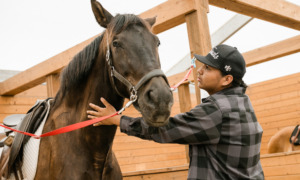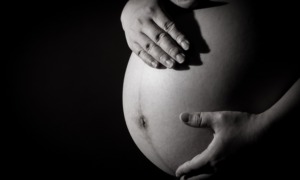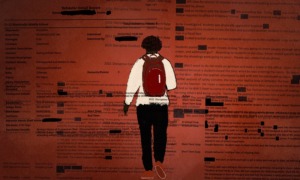 Here we go again. It seems as if every couple of years, we are compelled to repeat the same story—wildings in the 1990s, flashmobs in the 2000s, and now the knockout game in which kids try to sucker punch and knockout a stranger.
Here we go again. It seems as if every couple of years, we are compelled to repeat the same story—wildings in the 1990s, flashmobs in the 2000s, and now the knockout game in which kids try to sucker punch and knockout a stranger.
These stories always begin with isolated reports of unprecedented violent behavior by kids.
Soon similar reports start appearing across the country, law enforcement present a parade of horribles to showcase the threat they pose to public safety, and legislators introduce bills to prevent what a small chorus of experts warn could turn into a potential epidemic.
When we finally come to the end, we discover that these stories were not what they seemed. The incidents on which they were based turn out to be exaggerated, predictions of an impending crime wave, unfounded.
Despite their limp conclusions, these stories never leave us any wiser, just with harsher penalties, more prisoners and a seemingly insatiable appetite for the next report of a looming juvenile crime wave.
Why are we bound to repeat these stories, when there is something clearly and deeply wrong about them?
It’s tempting to blame the usual suspects—sensational media coverage, tough-on-crime politics, and the popular belief in the panacea of punishment.
While these things play a role in our attraction to these stories, they are not their source. They don’t cause our craving for false epidemics, but rather exploit a pre-existing desire for them. And they don’t explain why we need these stories in the first place, and why our hunger for them is undiminished by the fact that they keep turning out to be so flawed.
Perhaps the best way to think about these stories is not as a matter of policy or politics, but of fantasy.
This is not to suggest that these stories are easily dismissed, like a childish fear of the dark. Fantasies are powerful, complex, and seductive. They are the ways in which we imagine and act out the fulfillment of deep-seated wishes and also protect ourselves from the painful realization that our wishes are often in conflict with reality.
Fantasies are also not inherently bad for us, but they can become destructive when we are overly obsessed with the wishes that drive them. When this happens, our defenses turn paranoid, eager to annihilate any real or imagined threat to what we desperately want to believe.
Collective fantasies course through the justice system, but they are particularly powerful and pervasive when it comes to dealing with kids.
People tend to be more disturbed by a violent crime committed by a juvenile than if it were committed by an adult.
What worries us in these cases is not just the crime. It’s the fact that a violent crime committed by a child also jeopardizes something that we want to believe about children.
We have developed a perversely eloquent way to avoid thinking about this problem: If a child is charged with a violent crime, state laws across the country turn them into adults, which is precisely what some pending-knockout legislation aims to do.
The issue here is not that we believe children are like adults. It’s that we cannot reconcile our fantasies about children with their reality.
As research into juvenile development and brain science has established, children, particularly when they have experienced trauma, are often impulsive and even violent because they lack the capacity for judgment and reflection.
Juvenile justice has used this insight to advocate for a system that holds kids accountable, but in ways that allow them to develop beyond the worst thing they may have done. What we haven’t done is applied a similar rigorous analysis to our culture’s most cherished beliefs about children, examining where they come from and the purposes they serve.
Like dreams, we may feel as if our fantasies are trying to reveal something essential to us about the world, but in reality, they can only tell us something about ourselves.
We need to learn what our fantasies of children are trying to tell us. That’s the only way we will be able to loosen the grip they have upon us and to close the book on the next knockout story.
John Maki is the executive director of the John Howard Association, Illinois’ only juvenile and adult prison watchdog.


























